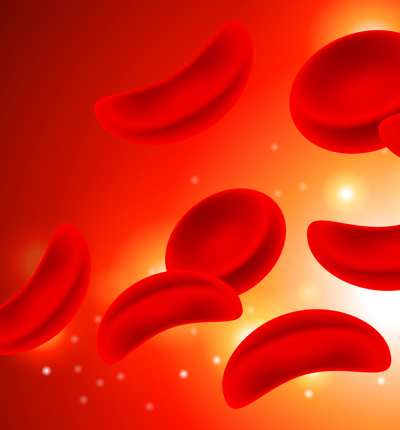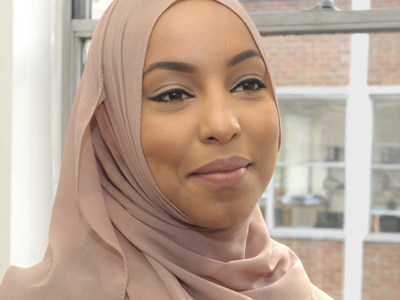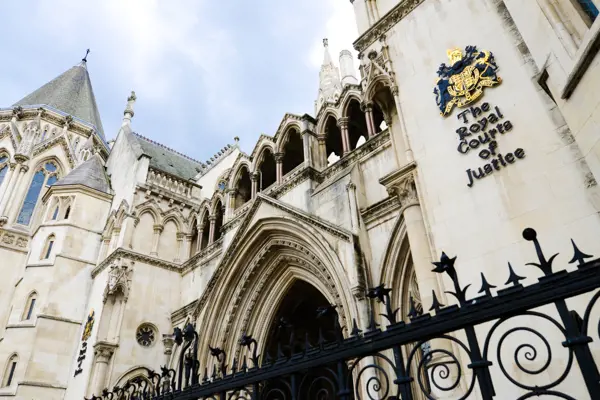
It’s time to pay attention to sickle cell disease
Ahead of World Sickle Cell Day clinical negligence solicitor Firdous Ibrahim discusses the need for greater awareness of the disease among healthcare professionals.
Posted on 17 June 2021
Saturday June 19th marks World Sickle Cell Day. In 2008, the UN recognised sickle cell disease as a ‘public health problem’ and this day is observed annually to raise awareness about this condition and the challenges experienced by patients and their families.
Is sickle cell disease being overlooked?
While sickle cell is a condition that has traditionally been overlooked, the topic has been highlighted following the high-profile tragic deaths of two young black men who lived with the disease.
In the inquest of Evan Nathan Smith, which Suzanne White and I represented the family, the Coroner found on balance that Evan would have lived had appropriate care been given. He said that there was a failure to appreciate the significance of Evan’s sickle cell crisis symptoms by those looking after him.
During the inquest, it became evident that the nursing team had not had any specific training in managing the disease, despite North Middlesex University Hospital being recognised for its expertise in managing the condition and being situated in a demographically large Afro-Caribbean community. The inquest also heard that the hospital’s haematology team were not made aware that Evan had been admitted until five days after he arrived at the hospital.
At the conclusion of the inquest, the Coroner directed that the Trust responds to the relevant action points in preparation for issuing a Prevention of Future of Death Report. These include:
- Whether sickle cell patients should be flagged on arrival at the Trust.
- Whether a sticker should be placed on front of the records or a flag placed on the electronic record, to help improve the identification of all inpatients with sickle cell disease.
- Whether sickle cell patients should be always on the horizon with haematology, whilst an inpatient with the Trust.
- Whether sickle cell patients should become the responsibility of the haematology team when a patient is in sickle cell crisis until the crisis has passed and then the patient can be transferred back to the relevant speciality.
- Whether haematology should be involved in ward rounds or multidisciplinary meetings when patients are under the care of another speciality.
- Whether all specialists sickle cell hospitals have a recognised ward for sickle cell patients.
Meanwhile, the mother of Richard Okorogheye, whose body was found in a lake in Epping Forest two weeks after he went missing, has criticised the police for the handling of her son’s disappearance. Evidence Joel, alleged that the police neglected her concerns that Richard was vulnerable because of his condition. She has since said that she hopes to create a foundation in his name that will support sufferers of sickle cell.
Following the deaths of Evan and Richard, the Sickle Cell Society has recently launched an inquiry to examine why care for sickle cell patients is too often substandard and look to ensure that such failings are not repeated in future.
There have been questions raised about what role race and wealth play in how much attention this disease receives. Campaigners have warned that these are not isolated incidents and many patients with these diseases are being ignored, because it doesn’t affect the average white person. Considering the grave impact of this disease on the lives of millions, it is clear that we need to continue to pay attention to this disease and ensure more education and training is provided to public bodies, to avoid further lives being lost due to lack of understanding about disease, which is currently the most common and fastest growing genetic blood disorder in England and the UK.
What is Sickle cell disease?
Sickle cell disease is the name for a group of genetically inherited health conditions that affect the red blood cell.
A normal red blood cell is soft, round and very flexible. The sickle red blood cell on the other hand is rigid and not able to keep its round shape, becoming shaped like a sickle or crescent moon, when oxygen levels in the body are low.
It affects millions of people worldwide but is particularly common in people with an African or Caribbean family background. The most serious type is called sickle cell anaemia and it is estimated that there are 15,000 people with this condition in the UK.
What are the main symptoms and complications of sickle cell?
Symptoms and complications of sickle cell disease are different for everyone. Some people have mild symptoms, which can last a few hours or days, while others are frequently hospitalised for more serious complications.
Characteristic features of this disorder include anaemia, repeated infections, and periodic episodes of pain. Painful episodes can occur when sickled red blood cells, get stuck in small blood vessels. These episodes called sickle cell crisis, deprive tissues and organs, such as the lungs, kidneys, spleen, and brain, of oxygen-rich blood and can lead to organ failure and death.
Can sickle cell disease be treated?
Sickle cell disease is a serious and lifelong health condition. For children and young adults, getting a stem cell or a bone marrow transplant is the only cure for the disease, but they are not done very often because of the significant risks involved.
There are a number of treatments and self-care steps available to help manage the pain, as follows:
- Drinking plenty of fluids and staying warm
- Painkillers, such as paracetamol or ibuprofen
- Daily antibiotics and having regular vaccinations to reduce your chances of getting an infection
- Regular blood transfusions if symptoms continue or get worse
How can I get involved in World Sickle Cell Day?
You can support World Sickle Cell Day by donating blood in memory of our client Evan Nathan Smith. The United by Blood campaign is encouraging black people aged 17-66 to register to donate blood on 19 and 20 June at locations across London and in Manchester, Bristol and Birmingham. The campaign is organised by three organisations - the African Caribbean Leukaemia Trust (ACLT), Black Mums Upfront and CellFeForLife and is supported by the NHS.

Firdous Ibrahim
Firdous Ibrahim is a senior associate solicitor in the medical negligence department.

Medical negligence
If you or a loved one have suffered medical negligence our lawyers are here to offer you sensitive support and expert experience gained after representing claimants in this area for more than 35 years.

Inquest finds failure to appreciate sickle cell crisis symptoms in the death of 21-year-old Evan Nathan Smith
An inquest into the death of Evan Nathan Smith, 21, from Walthamstow, has concluded that his death was the consequence of a sickle cell crisis in a patient with biliary infection.

